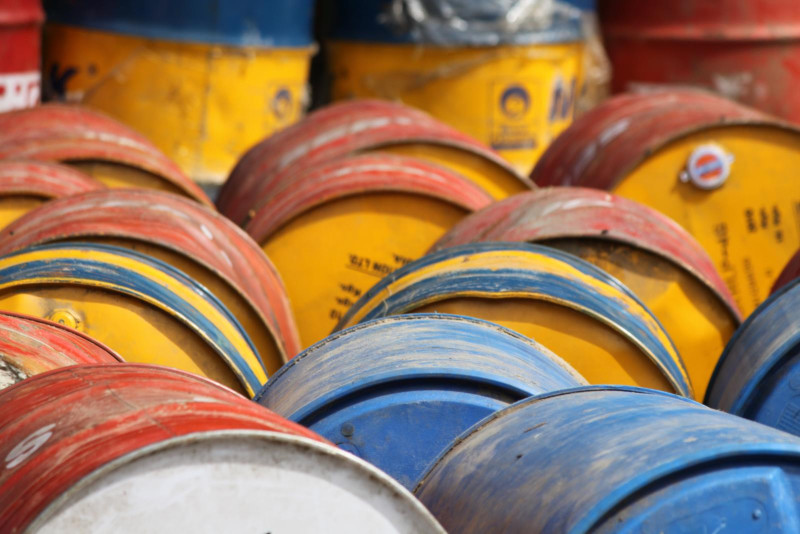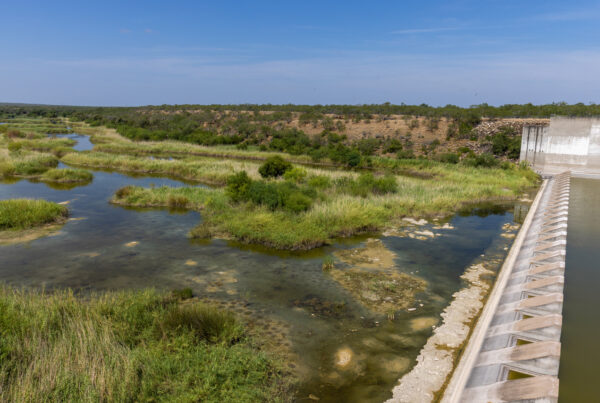Attacks on cargo ships in the Red Sea have forced hundreds of vessels to reroute, taking the long detour around Africa.
The Houthi militant group has been attacking ships from Yemen in an attempt to disrupt one of the world’s busiest shipping routes. The group says it’s targeting Israeli ships, or those headed to Israeli ports, to pressure Israel to stop its military campaign in Gaza.
The attacks have already disrupted global supply chains – but one area where prices have remained steady is the oil market. Matt Smith, energy analyst for Kpler, joined the Texas Standard to explain why.
This transcript has been edited lightly for clarity:
Texas Standard: Why are we not seeing more of a price reaction to all the security concerns in the Red Sea? Maybe there’s a lag here in time, I’m thinking.
Matt Smith: It isn’t, actually. We are seeing, as you mentioned, disruptions and diversions, but in the grand scheme of things, we’re not seeing global supply being interrupted. So we’re seeing freight costs increasing and insurance costs spiking to travel through the Red Sea, but the actual price of oil is seeing a fairly minimal impact just because these vessels are having to be rerouted, but there isn’t the loss of supply.
This is also happening at a time when the oil market is seasonally weak. We have a lot of supply, even with OPEC+ countries undertaking production cuts. And so demand is soft too. But big takeaway is that because we’re not taking barrels out of the market – they’re just being diverted – it’s causing just disruptions more than anything else.
But with rises in insurance rates and the cost in transportation, wouldn’t that eventually trickle down into what we pay for our gas and oil?
Yes, to it to a certain extent, because those refiners that are buying the oil are having to pay up for it. And it just means that these cargoes are not going to arrive in the next two weeks; they’re going to arrive in the next five weeks because they have to go all the way around Africa.
But it’s the container ships as well that have been hit the most, because they’re the ones that have been targeted. And so the delays there will ultimately hit us in the pocketbook because all of our goods that we’re expecting to get are going to be more costly and delayed in getting to us.
» GET MORE NEWS FROM AROUND THE STATE: Sign up for Texas Standard’s weekly newsletters
And of course, in the oil and gas chain, you’ve got all these other variables that you were talking about that are sort of offsetting some of those costs. Now, what about what’s happening in the Red Sea? Are we seeing most of that traffic normally flowing through there? Is that now being diverted away?
This is the wild thing : So the container ships, as mentioned, those were the ones that have been specifically targeted. So they’ve been going around the Cape of Good Hope at the southern tip of Africa there. And granted, as we saw an oil tanker hit a week or so ago, we’re seeing an increasing number of oil tankers diverting away from the Red Sea in the last week and a half.
And then in terms of LNG tankers, they have completely stopped going through the Red Sea. You typically see two to three a day, and there’s not been anything.
That said, because it’s such a choke point – you have 7-8 million barrels a day of oil and products that are moving through the Red Sea every day – a lot of tankers are still going through. So we haven’t seen a dramatic drop in traffic. For example, just today, we still see 220 tankers in the Red Sea; they’re only down about 20 or 30 from what is normal.
So you know, they’re still running the gauntlet, right? Because it’s such a low probability of being hit and because these people that are buying the crude are putting pressure on the shipping companies to move it, they’re still going past that narrow strait of Bab al-Mandab.
Still, you have these other shipping and cargo tankers that are being diverted. Does that having any ripple effects on the export of U.S. crude or petroleum products?
So in terms of U.S. crude, when it goes to Asia, it doesn’t go through the Suez Canal into the Red Sea. So that’s not a problem. U.S. product exports typically go into Latin America and into Europe. So that’s not a concern. But we are seeing secondary effects.
And so as European refiners have been concerned about security of supply, they’ve actually turned to pull in U.S. crude at a record pace, U.S. diesel at a record pace as well, rather than going to the Middle East because they’re concerned about that product transiting through the Red Sea. So the U.S. is actually benefiting, from that perspective, because they’re seeing much more demand for the products.
I was taking a look at the average price for a gallon of gas in in Texas: about $2.68. Do we expect that to go up in coming months?
There is the seasonal trend where we do see prices at the pump rise as we get into April-May time ahead of a summer driving season while we’re still seeing refinery maintenance. But as long as that price of oil remains around the $75 level, then the price of gas in Texas should remain around that $3 level, which is pretty good, right?














